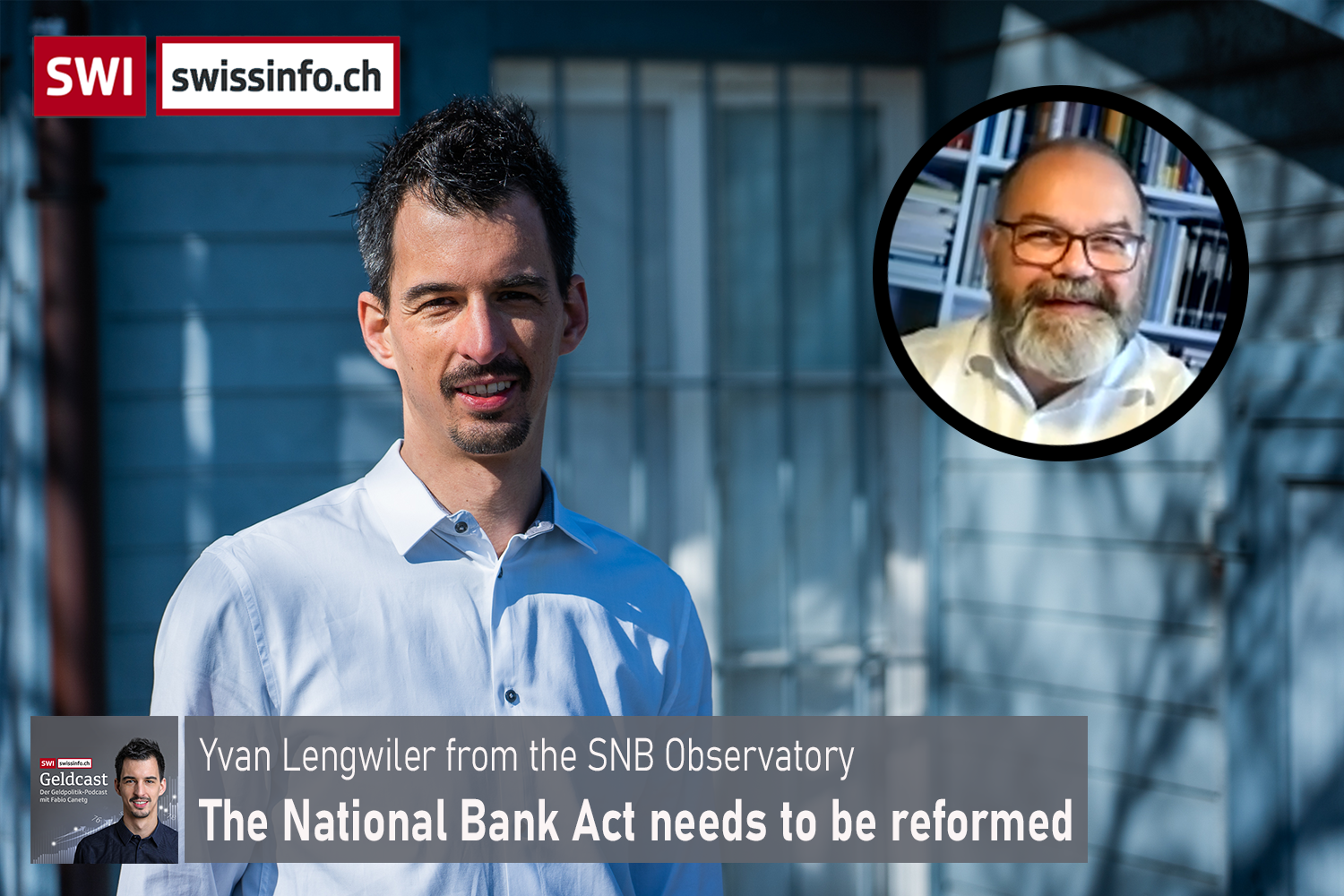
Inflation battle puts central banks under pressure

The Brazilian government is putting pressure on its central bank, and the president has threatened to dismiss its governor. This level of political interference would be unthinkable in Switzerland.
But with central banks around the world battling to control rising prices, some of the arguments being raised in Brazil about inflation and monetary policy also have a resonance in the Alpine state.
It’s not unsual for the Swiss National Bank (SNB) to be lectured by politicians and other interested parties.
For example, a group of economists including University of Basel professor, Yvan Lengwiler, suggest an adjustment of the inflation target. Instead of aiming at a rate between zero and two percent, they say the SNB should pursue a 2% target.
Brazil takes such pressure to a whole new level. Brazil’s newly inaugurated president, Luiz Inacio Lula da Silva, has declared the independence of the country’s central bank a “nonsense”.
This is because it has raised key interest rate to 13.75%, an increase of 11% in just two years. With interest rates so high, Lula cannot keep his campaign promise of “more meat and beer for everyone”.
It’s not just about meat and beer: high interest rates make mortgages more expensive. Households have less money for non-essential consumer spending, which in turn affects the economy. Companies are also feeling the effects of high interest rates: the rates of bank loans are becoming more expensive, and renovation and investment spending is being postponed. The local construction industry is especially affected.

More
Geldcast Update: Why are central banks independent? Case study: Brazil
But it is not only the economy that is adversely affected but also the state. The Brazilian finance ministry has recently had to pay higher interest rates on the national debt. This leaves less money for the government to spend on other projects, such as promoting culture. But this has not dampened Lula’s ambitions. In his first month in office alone, his government spent CHF200 million ($225.33 million).
Economic justification
There is an economic justification for high interest rates: they do not just slow the economy, but also slow inflation. At almost 6%, inflation is well above the target rate of 3.25%. The Brazilian central bank expects inflation to remain high for the foreseeable future and therefore announced that interest rates will not be falling any time soon.
President Lula cannot directly influence the key interest rates. He can only influence them indirectly by calling for an increase in the inflation target. This would allow the central bank to lower interest rates sooner.
But the Brazilian central bank is resisting the president’s demand for an increase in the interest rate target. “A higher inflation target would not lead to an increase in credibility,” said Campos Neto, governor of the central bank, in an interview on Brazilian broadcaster Roda Viva.
Debate on the international stage
The optimal level of the inflation target is a regular topic in many countries. In the US, the former chief economist of the International Monetary Fund (IMF), Olivier Blanchard, has been arguing for an increase in the inflation target from 2% to 3%. The US federal reserve has rejected this.

More
Geldcast update: calls for a more transparent Swiss National Bank
The SNB, like the Fed, also believes raising the inflation target is a bad idea. Ultimately, the SNB is the sole body responsible for deciding inflation targets. The law only stipulates that the central bank must ensure “price stability”.
Can Lula circumnavigate the central bank decision?
Unlike the Fed and the SNB, which can make decisions independently, the Brazilian central bank cannot determine the inflation target on its own. Brazil has a special committee for this purpose which convenes regularly to set inflation targets.
The governor of the central bank only holds one vote within this special committee; the finance minister and the planning and budget minister hold the other two votes. The two government representatives can therefore overrule the central bank governor. Through this approach the government can effectively circumnavigate the central bank’s governor and set the inflation rate sought by the president.
Since the 1990s, there has been consensus that independent central banks are better at keeping inflation low. This is because central bank governors, unlike politicians, are usually not afraid to raise interest rates when prices start to rise.
But whether low inflation is the most important economic policy goal is a matter of political debate. At present, however, it seems as though the inflation target is losing importance in Brazil.
Edited by Reto Gysi von Wartburg

In compliance with the JTI standards
More: SWI swissinfo.ch certified by the Journalism Trust Initiative




























You can find an overview of ongoing debates with our journalists here . Please join us!
If you want to start a conversation about a topic raised in this article or want to report factual errors, email us at english@swissinfo.ch.